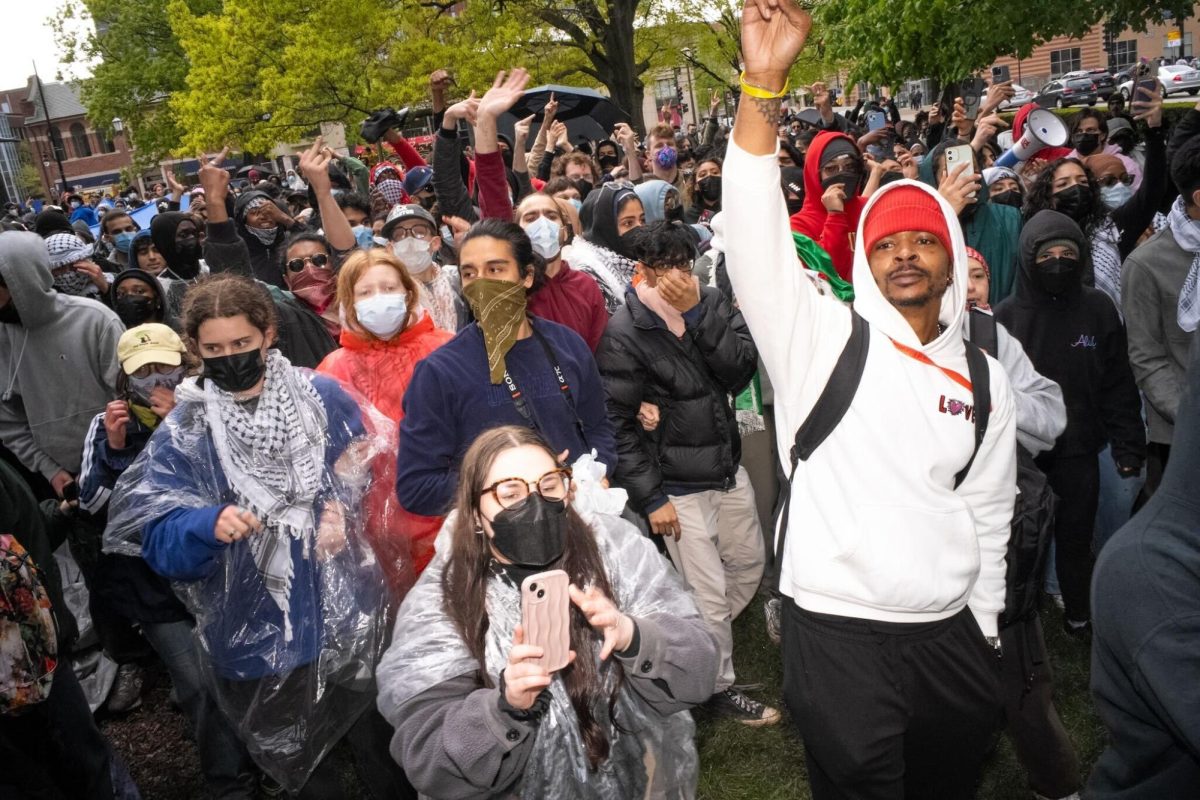Running is a simple sport. Essentially all it takes is lacing up the sneakers and hitting the pavement — left, right, left, right. But for all its simplicity, it’s not easy. In addition to the difficulty of running, runners are plagued by inclement weather, recurring injuries and an unforgiving schedule that revolves around running.
So why run? Runners say it becomes addictive, and no one else could understand unless they step into their well-worn shoes. So why run 26.2 miles to finish a marathon?
“There’s a feeling that crossing the finish line in a marathon that no one will ever understand unless they do it,” said Brian Sullivan, senior in AHS. “That feeling of having absolutely nothing left and crossing a finish line is awesome.”
Sullivan has crossed that finish line five times in the past four years. At 5-foot-5-inches tall and as a relative rookie to the sport, Sullivan is proof that anyone can be born to run.
“If you want to be a decent runner, I think you can. I was never fast,” he said. “You have to have a little bit of the crazy, but anybody can do it. It’s deciding that you’re willing to wake up on Sunday mornings and run 20 miles.”
Get The Daily Illini in your inbox!
Sullivan said he has made many sacrifices in the last four years in order to juggle the demands of his academic life and his passion for running.
“During high training weeks, I definitely don’t go out,” Sullivan said. “I’ve been guilty of [having] times I’ve said ‘Boy, I’ve got a paper, but a 7 mile tempo run might be more important to me today.’”
Katherine Davis, sophomore in LAS, will run her first marathon next Sunday in Chicago. The Bank of America Chicago Marathon is one of the largest spectator sports: An expected 1.2 million supporters will line the course that winds through 29 of Chicago’s neighborhoods. Davis said she has never been a runner per se, but signed up in January because the race is something she has always wanted to do.
Davis said training in the summer was easier, albeit hotter, because she had more time to run. Being back on campus has left Davis with little room to deviate from her schedule of class, work, homework and running.
“I don’t have a life,” she said.
In a typical marathon training plan, runners build up their mileage each week and have a long run on the weekends, ranging from nine to 20 miles as it gets closer to race day. After 20 miles, the body runs out of glucose and starts breaking down muscle for fuel, leaving the runner at a greater risk for injury.
“I never used to believe people when they say after a certain amount of miles it’s all in your head, but it really is,” Davis said. “I don’t register anything in my mind, I just look straight ahead and listen to the music, and that’s the only way I can do it. I just don’t think.”
Adam Sukiennik, freshman in LAS, will also be at the start line Sunday morning. Sukiennik ran his first marathon with his sister in Florence, Italy and hopes to break a time of three hours on his hometown course.
For males under the age of 35, a finish time under 3 hours 10 minutes will qualify the runner for the infamous Boston Marathon in the spring. Boston qualifiers are in the top four percent of marathoners in the world.
“If you get the Boston qualifier next to your name, you’re in elite company,” Sullivan said. “It has consumed my life for the last 18 months. It’s everything to anyone who thinks they have any shot: Boston is forever and Boston is everything.”
Sullivan came within three minutes of his goal at the Quad Cities Marathon on Sept. 26. Although he’s battled shin splints, Achilles tendonitis, knee injuries and possible stress fractures, he said he will not stop running until he qualifies because Boston is “the Mecca of marathon-ing.”
“Running doesn’t get a lot of publicity, but when you’re in Boston for marathon weekend, it’s like being a rock star,” he said.
Davis said when the race is over Sunday she will still run because she enjoys the alone time running offers her. Post-race, however, she said she will “force someone to put [her] in a stroller. [She won’t want] to walk for the rest of the day.”
Out of the 45 thousand who start Sunday’s race, an estimated 30 thousand will finish.
“It’s the most exhilarating feeling in the world to know you’ve done it,” Sullivan said. “You just want to be able to bottle [the adrenaline rush] and sell it.”
Even when the race is over, running still consumes Sullivan’s life.
“During running you very rarely think about running, and then when you’re not running you think about it a lot,” Sullivan said.







